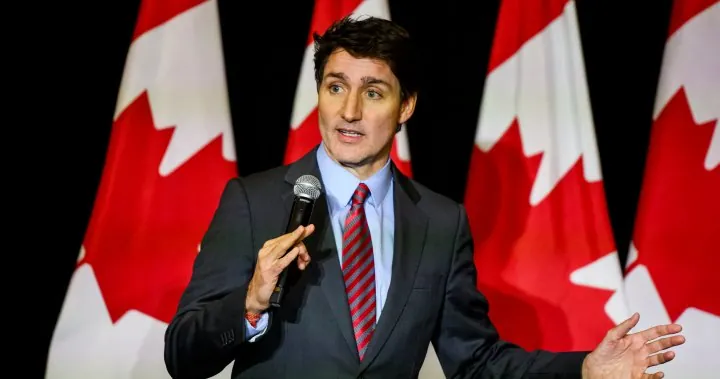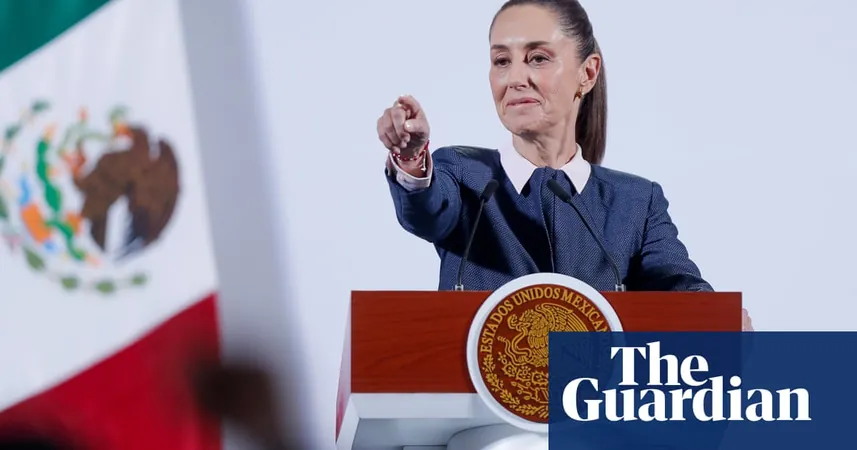
Huge Pension Surplus Redirected: What It Means for Canada's Public Servants
2024-11-26
Author: Emma
Huge Pension Surplus Redirected: What It Means for Canada's Public Servants
In a controversial move, Canada's largest federal public sector union has condemned the government's decision to redirect nearly $2 billion in surplus funds from the Public Service Pension Plan into a central account. This decision has raised alarm bells among union leaders who claim it represents a major betrayal of workers' trust.
On November 25, Treasury Board President Anita Anand reported to the House of Commons that as of March 31, 2024, the Public Service Pension Fund held approximately $1.9 billion in non-permitted surplus funds. The government plans to transfer this surplus into the Consolidated Revenue Fund, effectively removing it from the pension plan.
Anand stated that the new funds would be held in this central account while further actions are deliberated. However, the Public Service Alliance of Canada (PSAC) has strongly opposed this plan, advocating for the surplus to be reinvested into the pensions of its members and retirees. PSAC National President Sharon DeSousa expressed her frustration, highlighting that federal workers contributed significantly to this surplus through their own hard-earned money.
DeSousa remarked, “Taking these funds is a betrayal of their trust,” and indicated that the union had previously proposed a plan to safeguard this surplus to properly benefit its contributors. Moreover, she warned that this precedent could lead other Canadian employers to consider similar actions regarding pension contributions for public sector workers.
The union argues that this surplus represents a once-in-a-generation opportunity to restore fairness to the public service pension system, particularly by correcting the inequities introduced during the Harper administration. Notably, pension reforms enacted in 2012 require public servants hired after that year to work an additional five years to retire.
The union has voiced its unwavering intention to oppose any unilateral action regarding these funds. Concerns have also emerged from the National Association of Federal Retirees. CEO Anthony Pizzino emphasized the implications of the government’s decision, suggesting it signals a shift towards using workers' contributions for unrelated government spending.
The timing of this announcement could not be more critical, as the government is currently looking to tighten its budget through attrition, hiring freezes, and potential layoffs. David Macdonald, a senior economist at the Canadian Centre for Policy Alternatives (CCPA), noted that the intended use of the surplus may justifiably anger public servants given their financial contributions to the fund.
The CCPA recently highlighted the substantial impact pension incomes and retirees' spending will have on the Canadian economy, projecting that by 2025, such incomes will contribute $24.5 billion to federal coffers, underscoring the need for careful treatment of pension funds.
The Income Tax Act mandates that action must be taken regarding pension surpluses, but Macdonald pointed out that the government has alternatives to just absorbing the funds into general revenue. “Why not improve benefits instead?” he suggested, urging that the surplus should enhance workplace experiences for the workers who funded it, rather than become a fiscal tool for the government’s broader priorities.
The surge of public discontent surrounding this issue points to the potential ramifications for federal employees and the ongoing battle over pension rights in Canada. As this situation unfolds, the implications for public servants and the future of their pensions remain uncertain, with the union pledging to fight for the interests of its members.
Stay tuned as we continue to monitor this developing story and its impact on Canada's federal workforce!









 Brasil (PT)
Brasil (PT)
 Canada (EN)
Canada (EN)
 Chile (ES)
Chile (ES)
 España (ES)
España (ES)
 France (FR)
France (FR)
 Hong Kong (EN)
Hong Kong (EN)
 Italia (IT)
Italia (IT)
 日本 (JA)
日本 (JA)
 Magyarország (HU)
Magyarország (HU)
 Norge (NO)
Norge (NO)
 Polska (PL)
Polska (PL)
 Schweiz (DE)
Schweiz (DE)
 Singapore (EN)
Singapore (EN)
 Sverige (SV)
Sverige (SV)
 Suomi (FI)
Suomi (FI)
 Türkiye (TR)
Türkiye (TR)